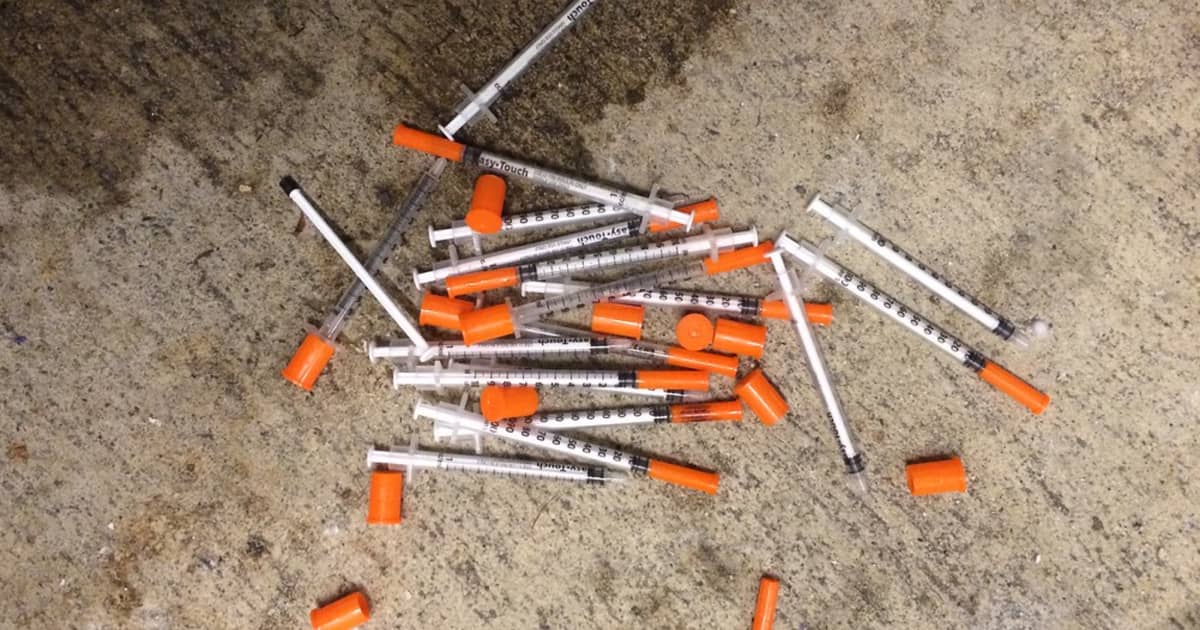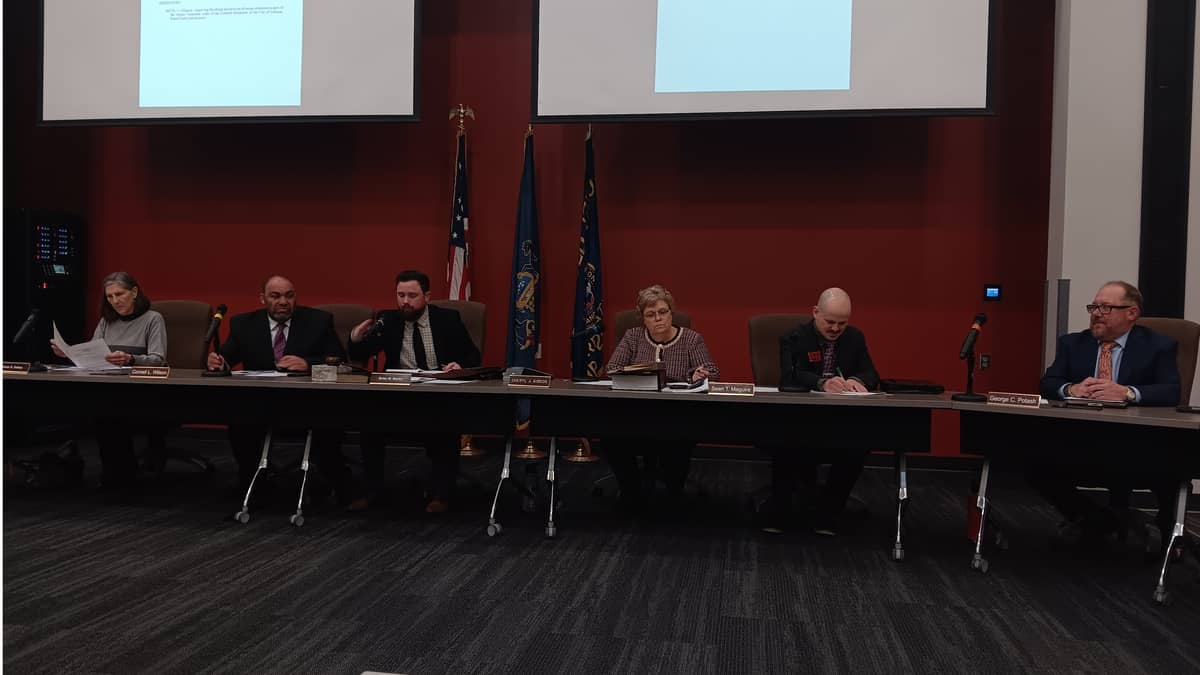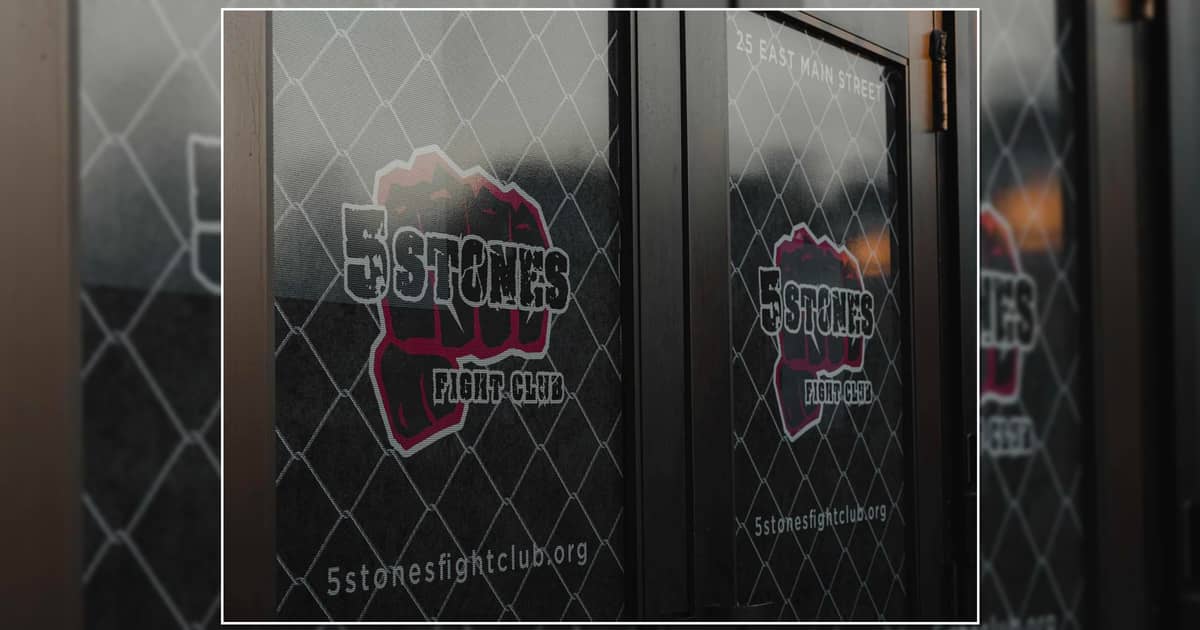There are encouraging early signs that opioid abuse in Lebanon County may be peaking, but no one is planning a victory lap in the war against drug abuse. Fentanyl, an especially deadly member of the opioid family, still has local officials on high alert.
According to the Pennsylvania Department of Health, opioid drug deaths statewide rose steadily starting in 2014, peaked in 2017, and actually declined in 2018.
Lebanon County may be following this trend. Its overdose death totals remained flat in 2017 and 2018—27 each year—after rising from 2014 through 2016, according to James Donmoyer, Executive Director of the Lebanon County Commission on Drug and Alcohol Abuse.
In recent years, opioids have dominated those statistics. 25 of the 27 drug deaths in 2018 (93%) involved opiates, usually combined with at least one other drug.
Through April of this year, there had been four overdose deaths in Lebanon County.
While heroin is still the cheapest opioid available on the street, Donmoyer says local agencies around 2016 began to see a rise in the use of fentanyl, an opioid drug that is up to 100 times stronger than morphine. Lebanon County about that time also began experiencing an increase in the use of cocaine and methamphetamine.
These side-by-side trends worry Donmoyer. Users may not know that the meth and cocaine they get on the street can be laced with fentanyl to increase the high. Even tiny amounts of fentanyl can be fatal.
Donmoyer’s agency, with just four full time employees, does not provide direct care or rehabilitation. Instead, it refers people with drug and alcohol problems to qualified providers. In the county’s last fiscal year, July 1, 2017 through June 30, 2018, the Commission referred between 900 and 1,000 people seeking help.
Donmoyer thinks the leveling off of overdose deaths may partly be due to the increased availability of the overdose reversing drug Narcan, the three year old “warm hand off” program, and the general education and outreach efforts of Lebanon County’s Heroin Task Force.
The warm hand off program allows overdose victims to meet with a counselor in the emergency room, resulting in an immediate referral to medical and rehabilitation professionals.
If you need help or know someone who does, Donmoyer suggests dialing the 2-1-1 Resource Hotline, Crisis Intervention at 717-274-3363, or the Lebanon County Commission on Drug and Alcohol Abuse at 717-272-0427.
The LCCDAA also maintains an online map of local treatment resources.
Want to know what else LCCDAA is doing? Here is a list from earlier this year that describes all the ways Lebanon County has responded to the opioid epidemic.
LEBANON’S RESPONSE TO THE OPIOID EPIDEMIC TREATMENT AND RECOVERY
January 2018 – LCCDA
The following programs and services were developed during the past few years, or are major ongoing contributors to the fight against opioid addiction in Lebanon County.
MA Prison Treatment Program: This treatment program takes clients from the Lebanon County Correctional Facility (LCCF) who have an addiction issue and they are placed directly into a D&A rehab treatment facility. The program is funded by Medicaid, also known as Medical Assistance/MA. These clients are completing their prison term, or are close to completing their term, and D&A rehab is offered, as compared to discharging the clients onto the streets or into the community. The program started back in March of 2015.
Warm Hand Off Project: Using Lebanon County D&A Commission funding, a Crisis Intervention caseworker meets with overdose survivors at the local Emergency Room to help the clients enter detox and D&A treatment. Most of the treatment is funded by the Lebanon D&A Commission and Medicaid Health Choices. This intervention & treatment process started back in October 2016. Pennsylvania Counseling Services (PCS) is our contracted Mobile Assessment provider and they work in partnership with Crisis Intervention in Lebanon County in providing a complete warm hand off program.
Recovery House: One female recovery house was created in Lebanon County using Medicaid Health Choices funding. The recovery house is located at 701Chestnut Street in Lebanon City and is operated by Pennsylvania Counseling Services (PCS). Recovery houses are not licensed or certified services or treatment; they are clean and sober housing. This recovery house project process was started back in December 2015 and was finally opened in January 2018.
Recovery Center: One recovery center was created in Lebanon county using Medicaid Health Choices funding. The recovery center is located at 701 Chestnut Street in Lebanon City and is operated by PCS. Recovery Centers are not licensed or certified services or treatment; they are places where people in the recovery community can access resources that will promote their continued recovery. This recovery center has been open since December 2015.
Vivitrol Coordinator: The medication Vivitrol is relatively new to the D&A field. It is typically a monthly injection, and decreases the overwhelming urge for opioids/heroin. If an opioid is taken while on Vivitrol, there is no effect from the drug. The full-time Coordinator position at RASE works with clients who are on Vivitrol, providing recovery support services and case management services. This is funded by Medicaid/Health Choices.
Vivitrol treatment provider: The Lebanon County Commission on Drug & Alcohol Abuse (LCCDAA) entered into a contract with Positive Recovery Solutions (PRS) to provide Vivitrol treatment to Lebanon County residents. We entered into this contract in 2017.
D&A Mobile Assessments: If a client is in Lebanon County, but cannot physically travel to a D&A outpatient clinic for an assessment, the assessor from the licensed outpatient clinic can travel to the client to conduct the assessment. This is funded by Medicaid Health choices funding. Examples include clients who are in a hospital or mental health unit, and cannot leave the facility to visit a D&A outpatient clinic. A provider (PCS) was selected and this program is scheduled to begin in January of 2018. This provider is part of the warm hand off project.
Buprenorphine Coordinator: Suboxone, also known as buprenorphine, is an opioid-based medication for opioid addicts. The client takes the suboxone medication each day, and this decreases the urge for heroin. The full-time Bupe Coordinator at RASE works with these clients, in the same fashion as the Vivitrol Coordinators, providing recovery support services and case management. This is funded by Medicaid Health Choices, with some funding from the D&A Commission. LCCDAA funds a total of 4-8 clients on a yearly basis.
Recovery Support Specialist: One full time Recovery Support specialist at RASE, funded by Medicaid Health Choices. This is a person in recovery, trained and certified as a recovery specialist, in the same fashion as a peer support specialist. A person in recovery, helping a person who is beginning their recovery program.
Lebanon Treatment Center (Methadone Clinic): The LCCDAA funds a total of 65 clients who receive Methadone treatment at the clinic. The clinic has a total maximum census of 400 clients, and the clients who do not receive county funding are funded by Medicaid Health Choices, private insurance or out of pocket at their own expense.
Coalitions: The Heroin task force is a joint venture between the Lebanon County Commission on Drug & Alcohol Abuse & Mayor Capello and the City of Lebanon. The heroin task force was established back in October 2015.
Recovery Events: The recovery center is providing recovery events and programs for people in recovery. An addict in recovery helping other addicts is a powerful influence on whether a person enters recovery and or treatment.
Medication Drop Boxes: There are now 4 sites to properly discard unwanted prescription medications in Lebanon County.
Community Outreach Worker: The Lebanon County D&A Commission contracted with Compass Mark. Compass Mark assists community leaders in organizing their groups and providing events and training in their community. Compass Mark also provides all the prevention & intervention services in Lebanon County.The funding for these services is provided by LCCDAA.
Support Groups: Families Joined is a free confidential support group facilitated by PCS and funded by the LCCDAA for families and friends who have lost loved ones or who are currently struggling with substance abuse issues in their families, specifically heroin & other opioid substances.

























